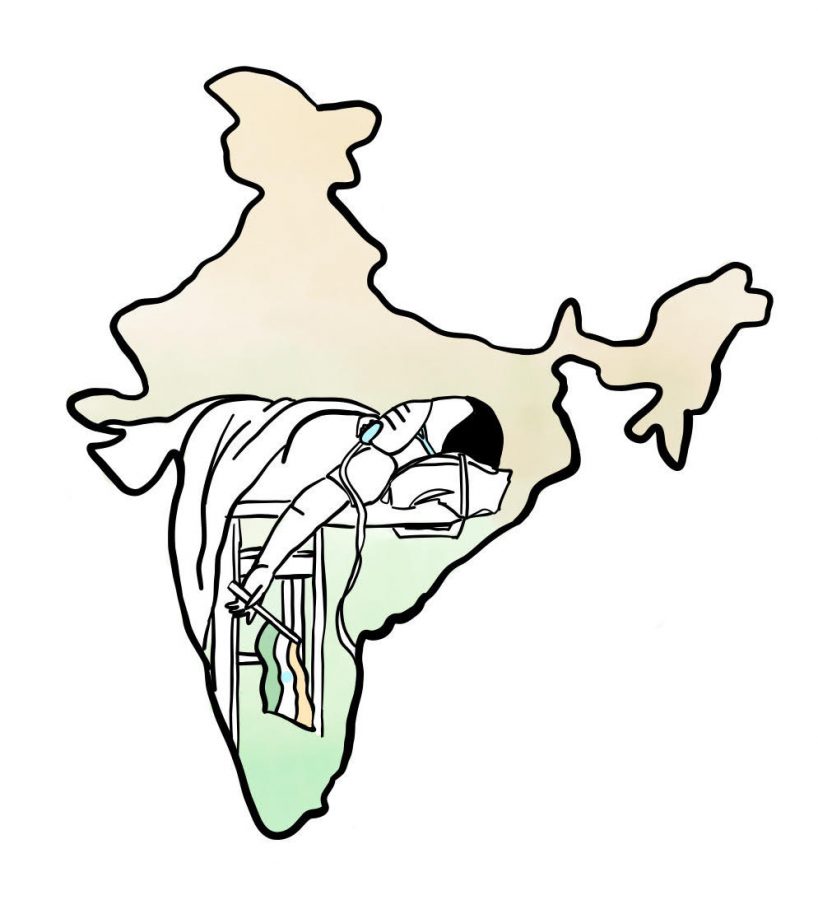COVID-19 Pandemic Ravages India
With over 400,000 new COVID-19 cases a day, hospitals are turning away patients and oxygen supplies are running low in India.
In recent weeks, India has experienced a second wave of COVID-19 that has surpassed global records. Although India struggled with a less severe surge in the fall of 2020, vaccination efforts in February and March led Health Minister Harsh Bardhan to declare the country was in the “end game”of the pandemic. However, on April 22, India broke the United States’ previous record of 313,310 cases recorded in a single day, and since then infection rates have continued to rise. On May 10, India reported 329,942 new cases. Deaths have also increased, reaching almost 4,000 each day. However, scientists estimate that the true toll is even greater than what reports show.
Many causes have contributed to the surge in India’s coronavirus infections. Only 9.9% of the Indian population have received at least one dose. The country does not have enough doses for all eligible citizens, however. Though India is the world’s biggest producer of COVID-19 vaccines, the government has not been able to buy enough for its own population.
In addition, as infection rates decreased in February and March, many restrictions were lifted. Large events such as religious meetings, cultural celebrations, and political rallies were permitted, increasing the spread of COVID-19. One particular event was the Kumbh Mela, a Hindu religious festival, which has attracted millions of people to the city of Haridwar.
Another contributing factor to increased infection rates has been the rise of new virus variants, particularly the B.1.617. Dr. Anju Taneja, instructor in physics, who was born and raised in India, said, “Even though it seems as if everything is fine now, we still have to maintain the necessary safety protocols because there are variants out there in the rest of the world, and it’s only a matter of time when the variants come back to places that seemed to have conquered the pandemic.”
The drastic rise in cases has strained India’s healthcare system to the breaking point. With thousands of patients in need of treatment, patients are being turned away because beds are filled. Crucial supplies like oxygen have run out and problems with transportation limit the ability to import replacements. Crematoriums are struggling to handle the influx of dead bodies, as facilities designed for 8-10 bodies struggle to accommodate over 100 each day.
The emotional toll of the COVID-19 surge in India has impacted the school community. Some students and faculty fear for the health of relatives and friends. On May 4, the U.S. restricted travel to and from India, preventing many from visiting loved ones. Dr. Taneja and Ms. Nora Yasumura, prep class dean, expressed their condolences by sending emails to the student body. On May 6, the Diversity and Inclusion Office, led by Ms. Yasumura, held a Pan-Asian affinity open office lunch in support of students impacted by India’s outbreak, among other issues. Sahil Annamaneni ’24 said, “It is important to reach out to friends who might be affected by this and be there for them through these difficult times.” Mehar Bhasin ’23 added, “I’ve been seeing a lot of people posting about the crisis on social media, and it makes me really happy that students at Hotchkiss are staying aware and donating.”






